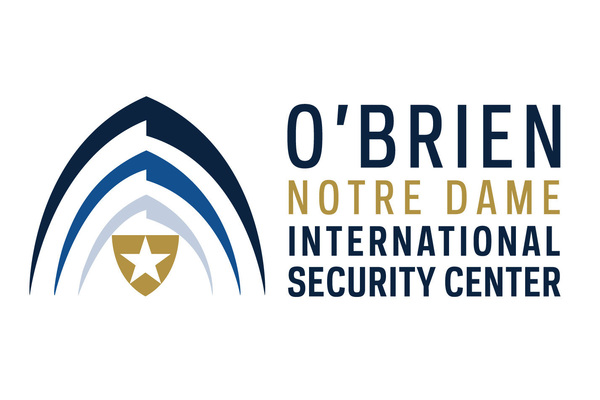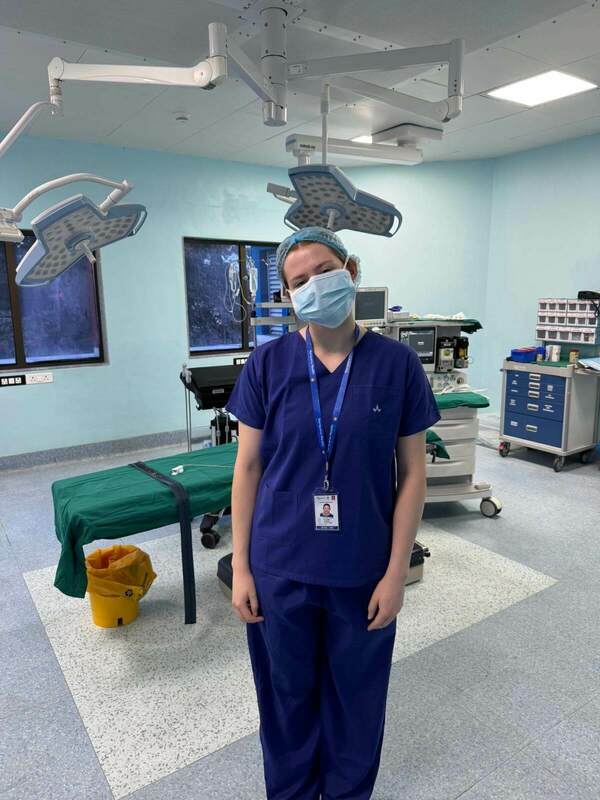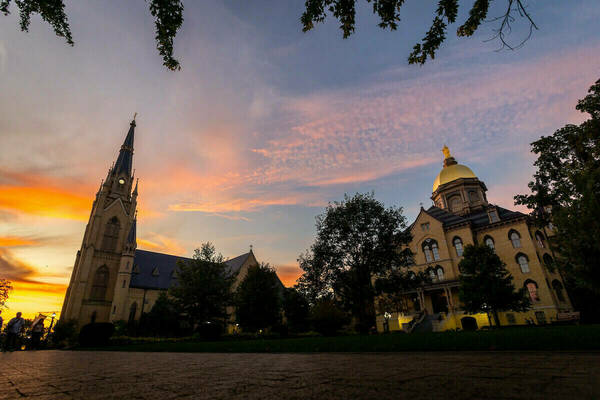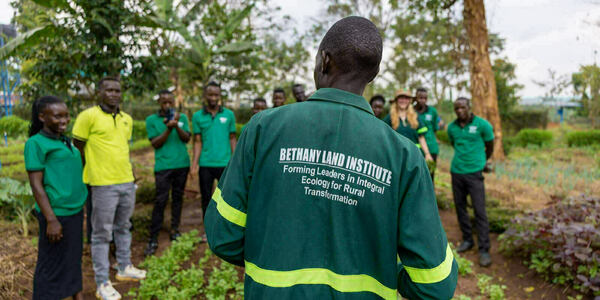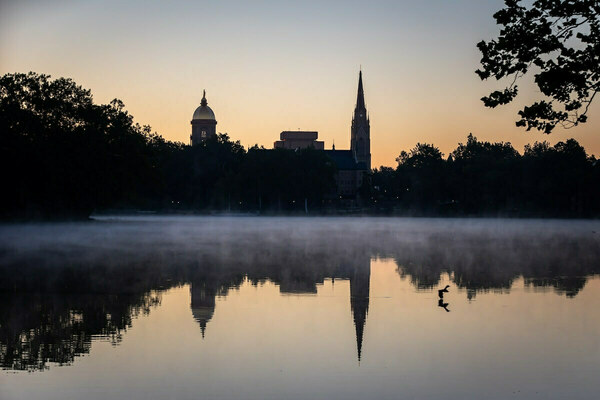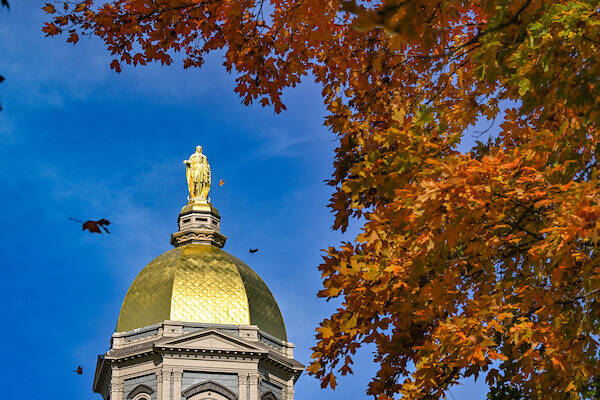With NIH grant, American studies professor spotlights often-overlooked experiences of disabled people in early U.S. history
After the American Revolution, people living with disabilities in the U.S. were often deprived of their rights to marry, vote, own property, serve in public office, or become members of a church.
And their experiences have routinely been excluded from the nation’s story, said Laurel Daen, a Notre Dame assistant professor of American studies.
Now, thanks to a National Institutes of Health and National Library of Medicine Grant for Scholarly Works in Biomedicine and Health, Daen will bring those stories to light in her book about disabled people and their experiences in early America.
“I want disabled people to know that they have a history in the nation’s founding period, even if this history is left out of most textbooks,” said Daen, whose book is tentatively titled “Capacity for Citizenship: Disability, Rights, and Resistance in the Early United States.”
A surprising story
Studying disability has the potential to radically transform our understanding of American history and culture during this period, she said. And, as the United States approaches its 250th birthday in 2026, Daen said, acknowledging ableism at the nation’s roots is an important step toward greater access and equality today.
Barriers to equality in America still exist, she said. For instance, some polling locations remain inaccessible to people with physical disabilities, and marriage restrictions persist for people with intellectual disabilities.
Daen became interested in the topic of disability as a graduate student at the College of William & Mary, where she initially planned to research the history of gender and health.
But while apprenticing at Colonial Williamsburg, she saw an amazing miniature art piece created by Martha Ann Honeywell, an artist born in 1786 without arms or hands, and with one short leg and one foot with three toes.
Fascinated, she wrote her master’s thesis about Honeywell, and began to wonder how other people might have experienced disability during that same time. She researched the topic for her doctoral dissertation, “The Constitution of Disability in the Early United States,” which won the 2017 Distinguished Dissertation Award in the Humanities and Social Sciences.
Revolutionary ideals
In her upcoming book, which is a continuation of her dissertation, Daen details “how exclusions were imagined, implemented, and enforced with repercussions for disabled people” in early America. She noted that restrictions placed on disabled people “functioned alongside and entwined with exclusions based on race, gender, class, age, and legal status.”
Daen — who is a concurrent faculty member in gender studies, health, humanities, and society, and history and philosophy of science — also highlights disability rights activism in the same period.
“Disabled people actively negotiated their situations, they resisted, they advocated, they organized, they demanded citizenship status,” she said. “The American Revolution intensified disability resistance as people drew on revolutionary language, ideals, and circumstances to argue their cases.”
However, the movement faced backlash and medical practitioners, among others, began to rationalize restrictions based on disability, she said.
“Ultimately, the medical practitioners’ assertiveness, their confidence that disability can be definitively identified and evaluated, and that disabled people should be excluded, managed, and ‘fixed’ by medical professionals helps Americans justify and enforce disability exclusions in the new republic,” Daen said.
Recovering records
For years, Daen has combed through primary sources in archives and libraries nationwide — including legal, government, medical, and immigration documents, as well as court records and accounts from poorhouses and asylums.
She’s also conducted extensive genealogical research to recover experiences of people with physical and intellectual disabilities “who appear only peripherally in other types of records.”
Daen has won other major awards in support of the project, too, including an American Association of University Women grant and two postdoctoral fellowships from the National Endowment for the Humanities.
She plans to submit a final book manuscript to her publisher in spring 2025.
“I’m happy to be working on a project that I think really matters,” she said. “I think my research deepens, expands, and transforms our national story in critical ways and provides important context as we work towards greater access and equality in the present.”
Originally published by at al.nd.edu on April 10, 2024.
Latest Research
- Kevin and Cynthia O’Brien endow Notre Dame center devoted to international security research, teaching and leadership formationKevin and Cynthia O’Brien of Dallas have made a significant gift to the University of Notre Dame to endow the O’Brien Notre Dame International Security Center, which provides a forum for scholars and students at the University of Notre Dame and elsewhere to explore the most pressing issues in national security policy.
- Global lessons in medicine: Notre Dame’s GPE program takes pre-med student to Mumbai…
- Lucy Family Institute researchers receive NSF award to promote AI skills and STEM career pathwaysResearchers with the University of Notre Dame’s Lucy Family Institute for Data & Society have received an…
- What does it look like to live ‘Laudato Si’’? You can see it in rural UgandaWhen Emmanuel Katongole was growing up in rural Uganda, his family’s life centered on a 3-acre plot of land where they grew coffee, beans, maize, bananas and other food crops. A nearby spring, accessible by a short…
- Karen Deak named Executive Director of Notre Dame’s IDEA CenterKaren Imgrund Deak, pictured above, has been named executive director of the IDEA Center at the University of Notre Dame. Karen…
- Hope, Legacy, and the Fight Against Brain Cancer: The Story Behind the Hahn-Pflueger Brain Cancer Scholar Program“The most powerful thing in this world is hope,” said Rex Pflueger,…








